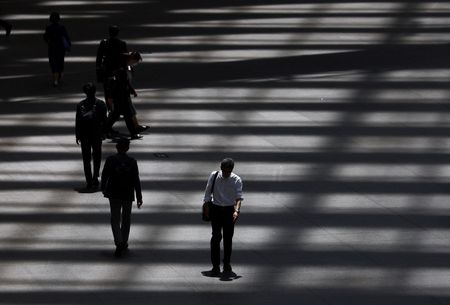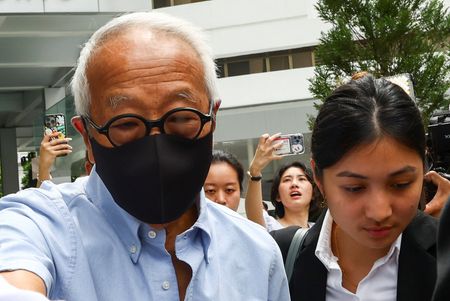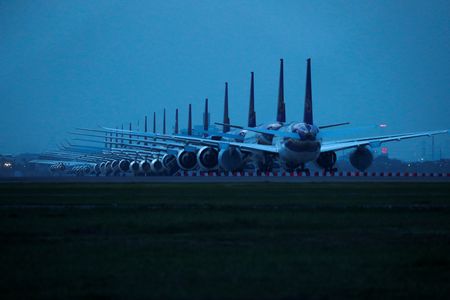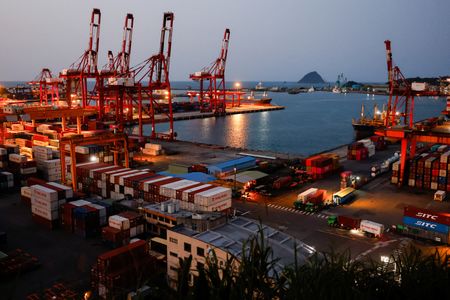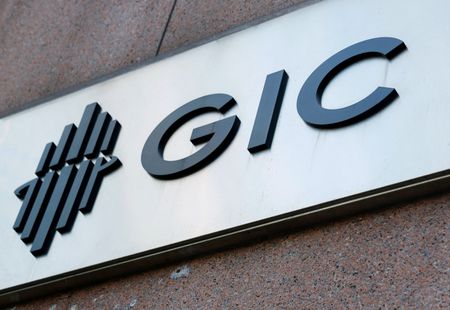TOKYO (Reuters) -A Japanese Labour Ministry panel has proposed a 6% increase in the national average minimum wage for this fiscal year, the biggest such jump since at least 2002, the Nikkei business newspaper reported on Monday.
Achieving real wage growth has become a top policy priority for Japan, as persistent inflation continues to squeeze households. Prime Minister Shigeru Ishiba’s ruling coalition lost control of the upper house in an election in July, highlighting growing frustration with the government’s response.
The proposed hike would raise the average minimum wage to 1,118 yen ($7.57) per hour, surpassing last year’s 5% increase and marking the largest rise since the current system was introduced 23 years ago, Nikkei said. It did not specify a source for the information.
A spokesperson for the Labour Ministry could not immediately be reached to comment on the report.
Ishiba pledged last year to raise the average minimum wage by 42% to 1,500 yen per hour by the end of the decade, bringing forward the target from the original mid-2030s goal set by the previous administration.
Higher minimum wages carry significant implications for Japan’s wage trajectory, especially given that the proportion of workers affected by minimum wage revisions is relatively high compared to other developed economies.
However, steep wage hikes pose risks for small businesses, which employ about 70% of Japan’s workforce, as these firms already allocate a larger share of profits to wages than their larger counterparts and may struggle to absorb further increases.
($1 = 147.7600 yen)
(Reporting by Makiko Yamazaki;Editing by Helen Popper)

